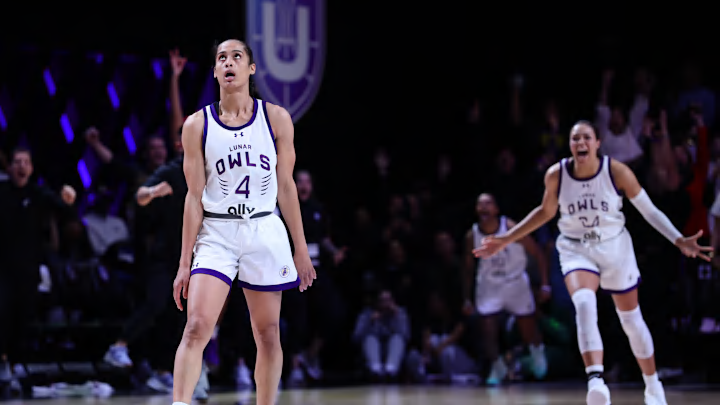Sure, the WNBA playoffs are well underway, but that didn't stop the team at Unrivaled from choosing this week to announce 30 of the 48 players slated to playing during the league's second season. So far, the lengthy list includes a lot of returning stars, as well as few new faces (including WNBA rookies Paige Bueckers, Kiki Iriafen, and Sonia Citron).
But the highly anticipated roster isn't the only thing to look forward to during Unrivaled 2.0 — and if anyone needs to be on notice, it might be WNBA leadership.
At a time when players are advocating for themselves more than ever (and have the backing of many fans), the second season of Unrivaled might just be a challenge the WNBA isn't ready for. Things will kick off once again in January 2026 in Miami, and this year will feature two new teams — the Breeze BC and the Hive BC — that will bring 12 new players into the fold.
Games will be played four days a week, which will give fans who are missing WNBA action quite a lot to take in.
The WNBA CBA has nothing to do with Unrivaled (yet)
One way Unrivaled directly challenges the WNBA is that the league's collective bargaining agreement (CBA) does not impact how the 3x3 league works — at least not yet. There are plenty of rumors (often substantiated by players) that the WNBA is actively seeking ways to limit player participation in secondary leagues, but so far Unrivaled has been able to operate freely.
This, in turn, has allowed the league to offer players something the WNBA hasn't been able to figure out to date: adequate pay. Unrivaled players make an average salary of $220,000, well above what many are earning at their main job.
While the hope of everyone involved is that the WNBA and its athletes work out a new agreement well ahead of the upcoming expansion drafts for the Portland Fire and Toronto Tempo, and certainly before free agency in the league, the reality is that players in Unrivaled will be okay financially no matter what happens next year — and that's a tough reality for the W to swallow.
Unrivaled's format is novel and fun
This year's WNBA season has been plagued by complaints about physicality and officiating, problems that Unrivaled hasn't had (at least not to the degree that the W has experienced in 2025).
The league's timing — Unrivaled kicks off roughly three months after the WNBA Finals will conclude — gives fans just enough time to miss their favorite players without oversaturating them. That combined with the inherent fun that was built into the first season of Unrivaled is setting up a dynamic that may prove to be a true challenge to the W's monopoly on player success, and that can only be a good thing for the athletes who are negotiating for what they deserve.
